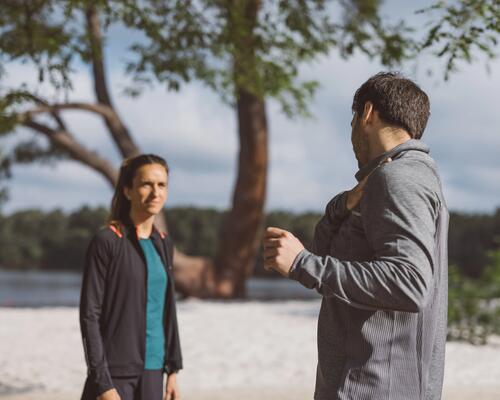What is tendonitis?
"To begin with, the medical profession no longer talks of tendonitis," Alexandre Batz adds when I ask him to shed some light on this condition. "Not the best start," I thought to myself. He explains: "We prefer to use the term 'tendinopathy' to talk about a tendon disorder. Tendonitis refers to an inflammation of the tendon, whereas, in general, this is not (or not solely) the case." Ah, much clearer now!
Unlike a muscle lesion, which generally occurs after a localised injury, tendinopathy often develops through repeated movements.
This is why athletes are not the only people to suffer from tendinopathy - quite the reverse! "It is much more common to treat tendinopathy of the shoulder linked to the work activities of a maintenance officer, for example, than a tennis player!" But then, does that mean that some professions are more at risk of tendonitis than others? Well, yes! By way of example, the physio mentions: "Hairdressers! With the repeated movement of blow-drying, shoulder pain is a common occurrence".
More generally, of the patients suffering from this type of condition, known as hypersollicitation, there are also many people working, just like me, in front of a computer and they also often suffer from a sore thumb. This type of tendonitis even has a name: De Quervain's tenosynovitis (which should not be confused with carpal tunnel syndrome, which is the result of pressure on the nerves, whereas tendonitis is the result of irritation caused by overuse).
But don't imagine that sportsmen and women athletes (especially top-level athletes) are spared, since tendonitis can also be caused by practising sport.



